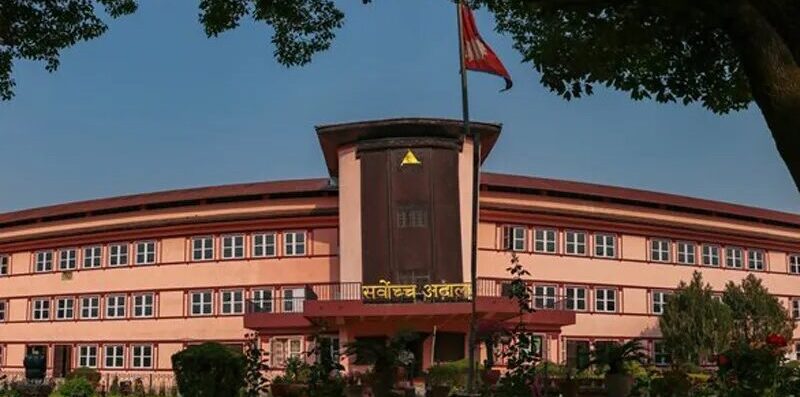KATHMANDU: A writ petition has been filed in the Supreme Court against the Chief Ministers and Provincial Chiefs of all seven provinces, accusing them of violating financial discipline by receiving double benefits.
Advocate Chandra Prakash Bhusal filed the petition, claiming that the Chief Ministers and Provincial Chiefs have been granted excessive and unjustifiable housing facilities, amounting to a misuse of state funds.
The petition specifically highlights a luxurious residence constructed in Bhainsepati, Lalitpur Metropolitan City, spanning over 27 ropanis and 12 aanas of land.
The construction cost exceeds Rs 850 million and includes 14 blocks with seven buildings, providing separate offices, living spaces for the Provincial Chief and Chief Minister, as well as rooms for assistants and staff.
The residence is equipped with modern amenities, including a master bedroom, yoga room, family meeting room, office spaces, a garden, a pond, a diesel generator, and massive water storage tanks.
Additionally, the writ petition raises concerns over the significant monthly expenses for the Provincial Chief and Chief Minister, estimated to be around Rs 200,000 to RS 400,000 excluding housing costs.
The petition argues that the government’s decision to provide such extensive housing facilities to the Provincial Chiefs and Chief Ministers is in violation of the Constitution of Nepal, as well as several legal provisions, including the Good Governance Act and the Union, Provincial, and Local Level Coordination Act.
The petitioner demands that the decision be annulled and that the housing facilities be returned to the state treasury after a financial audit.
According to the petition, the provision of double housing facilities—both in the provinces and the federal capital—has no legal basis and constitutes an unnecessary expenditure of public funds, thereby undermining financial discipline. It also accuses the government of policy corruption, as the decision was made without a clear provision in federal law.
The petition further argues that the government’s actions are in direct contravention of the Prevention of Corruption Act, which defines actions leading to the loss of state property as corruption.
The Supreme Court is scheduled to hear the writ petition on March 28.









Comment